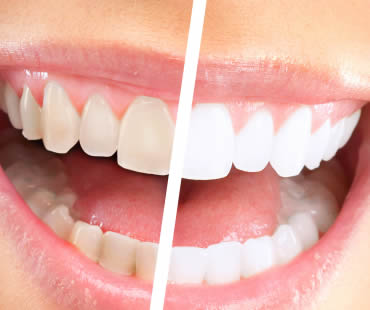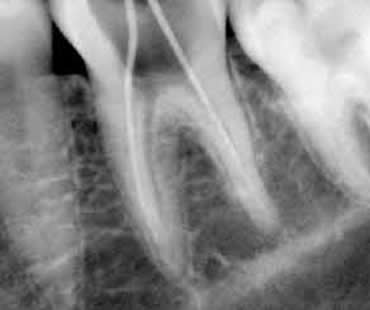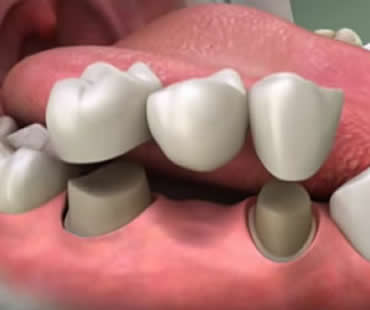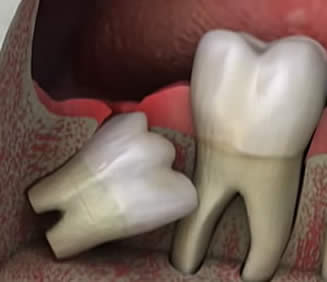
by Dr. Adkins | Aug 21, 2017 | Blog, Dental Topics, Uncategorized
Everyone in your family deserves high quality oral care, no matter if they are 2 or 22 or 62! Establishing a relationship with a family dentist is a great way to ensure all of you get reliable, consistent, excellent dental treatment so that you’ll all be smiling for years to come.
A family dentist offers full service options to meet all kinds of oral health needs. Both preventative and diagnostic treatments are performed to help you avoid problems with your teeth and gums, but when issues do arise they can be accurately identified and treated.
Find a practice that is convenient for you and others in your family, and employs a dentist and staff who make each of you feel comfortable and confident. The idea is to choose a dental office and stick with it for years to come so that you’ll receive consistent and personalized treatment while feeling at home in the dentist’s chair.
When choosing a dentist, schedule a consultation to learn more about the services and office. Most family dentists provide services such as:
- General dentistry – using modern technology and methods to meet the oral health needs of every family member
- Pediatric dentistry – focusing on dental needs of children to establish good hygiene habits, become comfortable with dental treatment, reduce decay, and avoid oral health issues in the future
- Professional cleanings – removing plaque and tartar to prevent cavities and gum disease, as well as improve the appearance of your smile
- Dental fillings – fillings for cavities, often made from composite resin material that matches your tooth
- Dental implants – artificial tooth and root that is integrated into the jaw so that it looks and feels very natural as a replacement for a missing tooth
- Crowns – cap that covers an existing tooth that has been damaged and requires rebuilding to make it functional and attractive
- Dentures – partial or full restorations to replace multiple missing teeth
No matter the current condition of your family’s teeth, it’s a good time to find a family dentist and get everyone the care they need for bright smiles ahead.
If you need a dentist in McDonough, contact us today

by Dr. Adkins | Aug 14, 2017 | Blog, Dental Topics, Uncategorized
More and more people today are heading to their dentist’s office to brighten their smiles through teeth whitening treatments. Although you can try to maintain white teeth by limiting foods and drinks that stain or stopping habits like smoking, the truth is that teeth are prone to discoloring over time. If you’re considering undergoing teeth whitening, get the facts before you go.
Is teeth whitening safe?
Most people are able to have their teeth whitened successfully without any issues. However, not everyone has good enough oral health to safely undergo treatment. Healthy teeth and gums are necessary so that the procedure is comfortable and effective. Patients with extensive fillings or crowns may not be the best candidates. Teeth that have extremely dark stains or discolorations from certain things like medications may not attain desired results.
How do I know if I’m a good candidate?
A complete oral examination by your licensed dentist is the best way to determine if teeth whitening is right for you. During the assessment, your dentist will look for decay, receding gum lines, fillings, enamel condition, tooth sensitivity and more to decide if treatment is advised. Sometimes dental work can be done to restore oral health and then whitening becomes an option.
What is the process?
Most professional teeth whitening treatments performed in a dental office are done with a high concentration peroxide bleaching agent and enhanced with special lighting to activate the gel. The dentist usually coats your gums with a product to limit sensitivity, and then the bleaching gel is carefully placed onto your teeth. Light is directed to the area, typically in three 15-minutes sessions. The dentist monitors the entire process for your safety and comfort.
What results can I expect?
It is important to discuss your specific case with your dentist prior to treatment so that you have realistic whitening goals in mind. The degree of whitening often depends on the level and cause of your tooth discoloration. Some patients achieve a couple of shades brighter, while others whiten up to ten shades.
We treat patients from McDonough and the surrounding area

by Dr. Adkins | Aug 7, 2017 | Blog, Dental Topics, Uncategorized
Even though regular checkups and proper dental hygiene greatly decrease the need for root canal treatment, the fact remains that it is one of the most common procedures performed by dentists today.
What are some of the most common reasons you might need this dental solution?
Decay
The primary cause for root canal procedures is decay that has entered the tooth pulp chamber and progressed to the point of causing infection or abscesses. Pain and tooth sensitivity often accompanies severe decay. Root canal treatment is the best way to avoid tooth extraction and restore oral health.
Trauma
If a tooth endures strong force such as from a sports injury, car accident or fall, the trauma can damage the tooth so badly that root canal treatment is needed. Even if trauma isn’t completely evident at first, a severed nerve to the tooth can cause it to die over time.
Genetics
Traits of teeth like their strength are passed along through genes. Some people inherit soft teeth that are more prone to decay, making it difficult to avoid decay even with diligent oral hygiene.
>h3>Tooth fracture>/h3>
A tooth can be fractured through chewing hard foods or ice, teeth grinding or clenching, or habits like nail biting. Even hairline fractures may allow bacteria to enter the tooth’s pulp and cause infections. Once the bacteria takes hold, root canal treatment may become necessary.
Deep cavity
Deep cavities within teeth can allow infections to thrive, eventually causing the tooth to become inflamed or die. A deep cavity isn’t necessarily painful, so patients may not even realize they have an infection. Regular dental checkups help catch cavities early, before they are able to become so deep and serious.
Previous dental work
Extensive or repeated dental work can cause trauma to teeth nerves and associated inflammation, making root canal therapy an important solution.
Pain
A toothache or sensitivity are the most obvious causes for root canal treatment. The pain can become severe and cause related headaches and earaches, abscesses, swelling or other problems. An emergency root canal procedure might be necessary to save the tooth and end the pain.
If you live in the McDonough area, contact us today

by Dr. Adkins | Jul 7, 2017 | Blog, Dental Topics, Uncategorized
If you’re looking to improve both your oral health and your smile, a dental crown or a bridge may be recommended. They both improve the functionality and appearance of teeth, providing many health and cosmetic benefits to patients.
What are crowns?
These are basically caps that are placed over existing teeth. They restore the size, shape and strength of your tooth and make it look natural and appealing in your smile. Crowns can be made of various materials including ceramic, resin, plastic, stainless steel or metal alloys. A combination of materials may even be used to achieve ideal strength and appearance.
When are crowns recommended?
There are a number of reasons that dentists install crowns. They may protect a weak tooth, save a cracked tooth, restore a worn or broken tooth, hide a badly discolored or crooked tooth, hold a bridge, cover an implant, or aid in completing a cosmetic dental procedure.
What does the crown procedure involve?
A crown installation typically requires three dental visits. Initially, the dentist examines the tooth to advise the best material. On the second visit, the tooth is prepared and an impression is made for creating the crown in a dental lab, and a temporary crown is placed. The final visit involves replacing the temporary crown with the final one.
What are bridges?
These restorations consist of two crowns that are joined together by a tooth. Bridges replace missing teeth by relying on adjacent teeth for support. They are made out of the same types of materials as crowns.
When are bridges recommended?
Bridges are most often a solution for replacing a few teeth, especially on just one side of the mouth. They are only successful when neighboring teeth are strong and offer excellent bone support.
What is the bridge procedure?
While two crowns and a missing tooth are fabricated in a dental lab, teeth adjacent to the gap are trimmed and prepared for crowns. When the restoration is ready, the pieces will be joined in the mouth to create a bridge to be held in place by the crowns on both sides of the artificial tooth.
We treat patients from McDonough and the surrounding area

by Dr. Adkins | Jun 21, 2017 | Blog, Dental Topics, Uncategorized
Dentist in McDonough that treats wisdom teeth
Wisdom teeth, your third set of molars, are named that because they are the final teeth to erupt. They usually come in between ages 17 to 25, and are located in the very back of your mouth on the top and bottom. Your dentist will examine you to find out if your wisdom teeth are properly positioned and healthy. If they aren’t, your dentist will recommend removal.
How do you know wisdom teeth should be removed?
Some of the signs there is a problem with your wisdom teeth include pain, infection, cysts, gum disease, damage to nearby teeth, and tooth decay. If you experience any of these symptoms, see your dentist for an examination.
What are impacted wisdom teeth?
Sometimes your teeth just don’t have room to grow in properly. They can erupt at angles within your jaw, sometimes even horizontally. If wisdom teeth aren’t able to erupt normally they can become trapped, or impacted, inside your jaw. Symptoms of impacted wisdom teeth are pain, infection, and swelling. When teeth are impacted, they can lead to serious problems. Many dentists want to avoid impacted teeth and therefore remove your wisdom teeth before they erupt or grow too big.
Are there less obvious reasons to remove wisdom teeth?
It’s not always clear when these teeth way in the back of your mouth are causing problems, or might in the future. Many dentists remove them in teens or young adults so they don’t cause problems later, or become too firmly planted in the jaw. Also, sometimes wisdom teeth are removed as part of orthodontic, periodontal, or restorative treatment plans.
What happens if I don’t have them removed?
Some dentists prefer to wait and see what happens with time to your wisdom teeth. Make sure you continue to have these teeth monitored, because the risk of problems doesn’t go away with age. Removing wisdom teeth isn’t always necessary, because if there’s room in your mouth and they come in properly, they work just like any other teeth. The key is to watch them to make sure problems don’t arise in the future.
We treat patients from McDonough and the surrounding area







 770-957-5214
770-957-5214  E-Mail Us
E-Mail Us 
